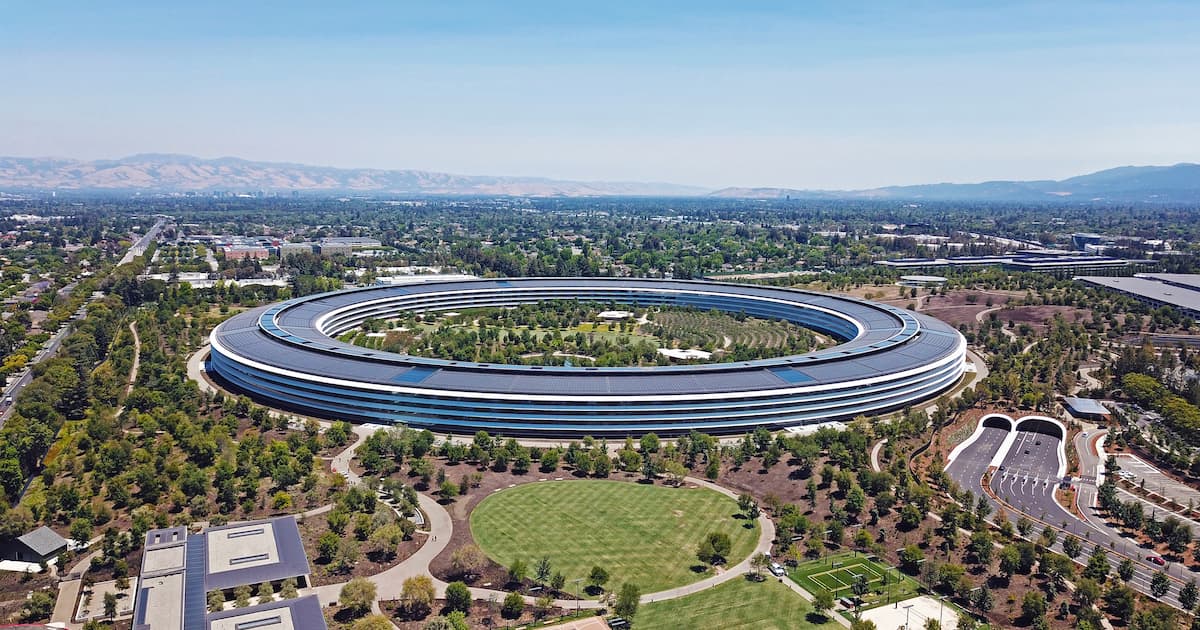Considered the tech giant’s WWDC for artificial intelligence, Apple holds an internal AI summit each year. Since 2020, that in-house gathering hasn’t been in-house at al: it’s been conducted remotely because of the COVID-19 pandemic. In February 2023, however, Apple will once again hold its AI summit live and in-person.
News on the Heels of Lots of AI News
There’s been quite a bit of chatter throughout tech news of late. OpenAI’s ChatGPT has garnered a lot of attention, good and bad. Google and Microsoft have launched new or upgraded AI projects.
Now we hear about the private event where Apple employees get to discuss and learn where the Cupertino flavor of AI is headed. We can’t really predict what might come of the summit, obviously, since it is an employee-only affair.
Nonetheless, we know that Apple continues to add to its AI and Machine Learning repertoire. More new features, such as Crash Detection, have also generated their fair share of headlines.
The internal AI summit was on the books for months before ChatGPT took headlines by storm, of course. The fact that it’s happening isn’t really the interesting part.
Does Apple’s Return to Live and In Person for Employees Mean Going Back to Traditional Media Events?
Since the pandemic began, Apple has not held public events live and in person. Whether it was a product launch or WWDC, everything was prerecorded. For quite some time, the format wasn’t even in-person; everything was done remotely.
For WWDC 2022, Apple invited a relative handful of folks to Apple Park. Members of the press were invited to the campus for the iPhone 14 launch event in Sept. 2022. In both of those cases, though, everything was prerecorded.
For the upcoming AI summit, the “prerecorded” aspect is apparently gong away. Bloomberg’s Mark Gurman has heard from multiple Apple employees the event will not only be in-person, but live.
Employee’s will gather for the presentations in the Steve Jobs Theater at Apple Park. It will still be streamed for employees unable to attend, but it will otherwise follow the same format as the pre-COVID days.
Apple Is Easing Its COVID-19 Policies, Perhaps Will Return to ‘Normal’
Recently, a report had Apple easing back on many of its COVID-19 policies. Beginning this month, corporate employees aren’t required to test for COVID-19 anymore. The company has also begun the process of unlimited sick leave for those infected by the virus.
The question now is, will this return to “normal” also extend to WWDC 2023 and other public events. Apple has yet to hold its first media event of 2023, but many observers believe one is coming in March or April.
Only time will tell, of course. I hate to sound cynical, but perhaps Cupertino wants to make sure such live, in-person events among its own employees don’t turn into “super spreader” events before it opens that can of worms for developers and media.

Jeff:
Google and, to a lesser extent, MS’s imperative to invest in AI is quite distinct from that of Apple, at least insofar as the Cupertino-based company has demonstrated by its application of AI-enabled technologies.
As has been recently pointed out, Google’s CEO, Sundar Pichai, is putting their AI product, Bard, out for ‘trusted testers’ and aggressively moving to have it available to the public in the coming weeks https://www.cnn.com/2023/02/06/tech/google-bard-chatgpt-rival. This is because ChatGPT is seriously threatening their core online search business.
Microsoft, whilst still promoting their far-less utilised Bing search engine, are less vulnerable to as a business to impact on search for their core business than for their enterprise suite of software and services, including cloud-based services, which we should anticipate will substantially benefit from their AI offerings. We might anticipate an interplay and tight integration between those cloud services and whatever AI-assisted AR (or VR) products, likely targeted for enterprise and lesser-so for entertainment/gaming, they may be offering in future.
As for Apple, they have been quietly focussing their AI use cases to beneath-the-bonnet (or ‘under-the-hood’ in American parlance) applications, such as in how their devices operate, such as their AirPods Pro and HomePod devices (know) their environment and adapt in realtime to provide the user with the optimal acoustic experience, or in things like Handoff and other apparently seamless integration of productivity applications, and in features like fall detection and AI-assisted emergency calls for help, rather than in the more glamorous and sexy applications of a personal assistant, such as ChatGPT, Alexa and whatever Google are about to unveil.
Yours truly posits that we can anticipate a continuance of these less glamorous but profoundly impactful everyday applications of AI from Apple in near term, until such time as their product can provide a reliably superior personal assistant experience; and even here, will likely continue to emphasise the practical applications, as in an AI-assisted self-driving automobile or AR device (here’s hoping for those Tony Stark glasses with Apple’s version of JARVIS), than in simply a disembodied voice assistant that aids professionals do differential diagnoses, file court briefs or cheat on their term papers and manuscripts for peer-reviewed publications.